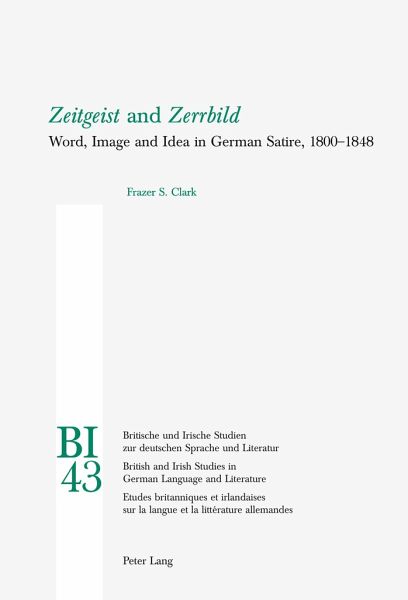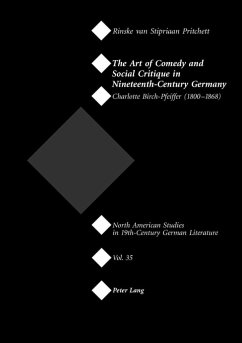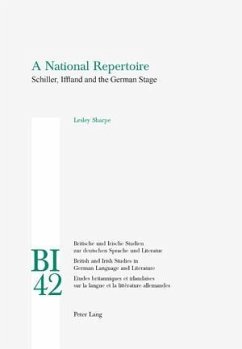
'Zeitgeist' and 'Zerrbild'
Word, Image and Idea in German Satire, 1800-1848
Versandkostenfrei!
Versandfertig in 6-10 Tagen
118,35 €
inkl. MwSt.

PAYBACK Punkte
0 °P sammeln!
This book examines the defining trends in German politics, history and thought between the Napoleonic wars and 1848, and reflects on how they shaped the verbal and visual satire of the age. Taking issue with the idea that German satire before 1848 is too fragmented for a coherent large-scale study, the author draws widely on the spheres of literature, history and philosophy to inform his work. In particular, he focuses on the all-important notion of the world order, of what constitutes the rightful path of history and of mankind - a question with which German thought at the time was profoundly...
This book examines the defining trends in German politics, history and thought between the Napoleonic wars and 1848, and reflects on how they shaped the verbal and visual satire of the age.
Taking issue with the idea that German satire before 1848 is too fragmented for a coherent large-scale study, the author draws widely on the spheres of literature, history and philosophy to inform his work. In particular, he focuses on the all-important notion of the world order, of what constitutes the rightful path of history and of mankind - a question with which German thought at the time was profoundly concerned. Whether clothed in the garb of orthodox theology or post-Enlightenment philosophy, various (and often conflicting) ideas as to the proper way of the world were fundamental in shaping satirical word and image in the first half of the nineteenth century.
Drawing on a wide range of satirical print and polemic, the author traces these ideas through the rise and fall of Napoleon, the ideological battles of Hegelianism and Christianity, the growth of German liberalism and the evolution of Germany's national figure, der deutsche Michel. In doing so, he throws new light on an interesting and often neglected corpus of German art and literature.
The book is richly illustrated with over 100 contemporary prints, 16 of them in colour.
Taking issue with the idea that German satire before 1848 is too fragmented for a coherent large-scale study, the author draws widely on the spheres of literature, history and philosophy to inform his work. In particular, he focuses on the all-important notion of the world order, of what constitutes the rightful path of history and of mankind - a question with which German thought at the time was profoundly concerned. Whether clothed in the garb of orthodox theology or post-Enlightenment philosophy, various (and often conflicting) ideas as to the proper way of the world were fundamental in shaping satirical word and image in the first half of the nineteenth century.
Drawing on a wide range of satirical print and polemic, the author traces these ideas through the rise and fall of Napoleon, the ideological battles of Hegelianism and Christianity, the growth of German liberalism and the evolution of Germany's national figure, der deutsche Michel. In doing so, he throws new light on an interesting and often neglected corpus of German art and literature.
The book is richly illustrated with over 100 contemporary prints, 16 of them in colour.












